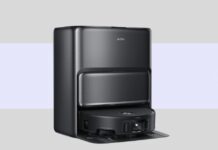Any successful manufacturing process requires an efficient and reliable set of machines. But it’s not enough to simply buy and install them—proper care and maintenance is key to ensuring their optimal performance and longevity. As a beginner manufacturer, it can be overwhelming to navigate this aspect of production. Read on for a quick guide on how to care for your machines.
Read the Manual
The first and most basic step to caring for your machines is to read the manual that comes with them. This may seem like an obvious point, but you’d be surprised at how many people skip this step. The manual will have specific instructions for operating and maintaining the machine, including important details such as lubrication requirements and cleaning instructions. Follow this information closely to avoid breakdowns and machine failures.
Clean and Lubricate Regularly
Cleanliness and proper lubrication can go a long way in maintaining a machine’s performance. Schedule routine maintenance sessions to clean and lubricate each machine. Make sure to use the recommended lubricant type and amount specified in the manual to prevent damage to the machine—which you can find at businesses like Advanced Machine Services. Remove any debris or buildup in gears, belts, or other parts to avoid jamming or other mechanical problems.
Inspect and Replace Parts When Needed
Machine parts can wear out over time and need replacement. A proactive approach to part replacement can actually lead to cost savings in the long run, as it can prevent machine breakdowns and reduce maintenance expenses. Keep a record of the machine’s usage and replace items such as belts, chains, and bearings according to the manufacturer’s suggested schedule. It’s also important to inspect the machine regularly for loose or damaged parts, and repair or replace them as needed.
Train Operators
Your machines are only as good as the individuals operating them. Properly trained operators can prevent accidents, reduce machine downtime, and increase production efficiency. Train your operators on the proper use of the machines, including safety protocols, to ensure they are being used correctly. The manufacturer’s manual may also contain specific operator training guidelines that should be adhered to.
Store the Machines Correctly
When not in use, it’s important to store your machines correctly to enhance their lifespan. Store them in a dry, cool environment with adequate ventilation, away from direct sunlight or heat sources. Cover them with protective covers to prevent dust or debris from accumulating on them. Also, avoid overloading machines with heavy weights, which can lead to stress on mechanical parts and cause damage.
Properly caring for your machines can have a major impact on your production output and overall cost savings. Follow these steps and be sure to refer to the manufacturer’s manual for specific instructions to maintain your machines in top shape. With regular maintenance and attention, your machines will help you achieve your manufacturing goals for years to come.



























































